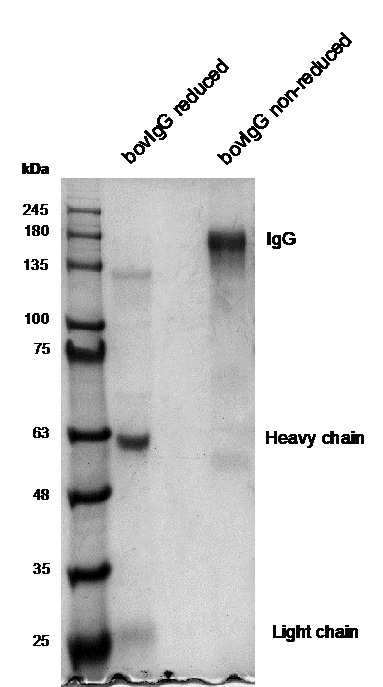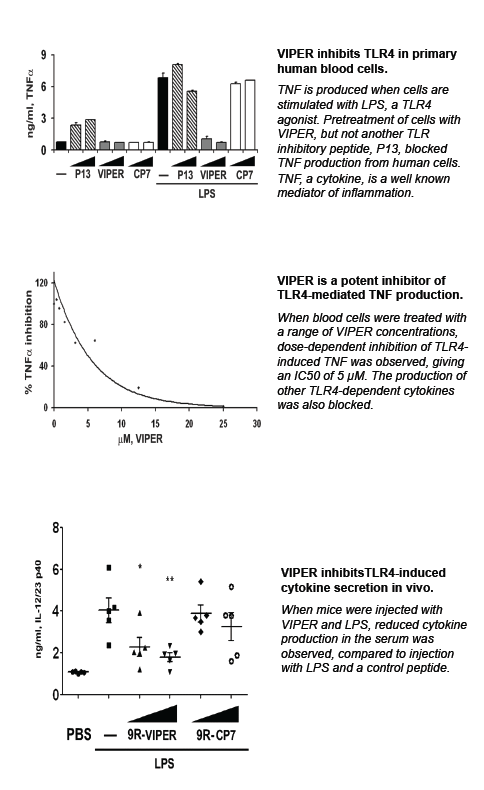
Cat. #153320
Anti-Mycobacterium bovis [11G3]
Cat. #: 153320
Unit size: 100 ug
Availability: 1-2 weeks
Target: Mycobacterium bovis
Class: Monoclonal
Application: ELISA ; IP
Reactivity: Mycobacterium bovis
Host: Mouse
£300.00
This fee is applicable only for non-profit organisations. If you are a for-profit organisation or a researcher working on commercially-sponsored academic research, you will need to contact our licensing team for a commercial use license.
Contributor
Inventor: Irene Grant ; Linda Stewart
Institute: Queen's University Belfast
Tool Details
*FOR RESEARCH USE ONLY (for other uses, please contact the licensing team)
- Name: Anti-Mycobacterium bovis [11G3]
- Research fields: Microbiology
- Clone: 11G3
- Class: Monoclonal
- Conjugation: Unconjugated
- Strain: Balb/c
- Reactivity: Mycobacterium bovis
- Host: Mouse
- Application: ELISA ; IP
- Description: Bovine tuberculosis (TB) caused by Mycobacterium bovis continues to be a significant animal health issue in some countries, including the United Kingdom and Ireland. Anti-Mycobacterium bovis [11G3] has been demonstrated to work by ELISA and for immunocapture.
- Immunogen: Gamma-irradiated whole M. bovis AF2122/97 cells
- Isotype: IgM kappa
- Myeloma used: Sp2/0-Ag14
- Recommended controls: M. bovis AF2122/97 cells
Target Details
- Target: Mycobacterium bovis
- Target background: Bovine tuberculosis (TB) caused by Mycobacterium bovis continues to be a significant animal health issue in some countries, including the United Kingdom and Ireland. Anti-Mycobacterium bovis [11G3] has been demonstrated to work by ELISA and for immunocapture.
Applications
- Application: ELISA ; IP
Handling
- Format: Liquid
- Concentration: 1mg/ml
- Unit size: 100 ug
- Storage buffer: PBS with 0.02% azide
- Storage conditions: -15° C to -25° C
- Shipping conditions: Shipping at 4° C
References
- Stewart et al. 2012. J Clin Microbiol. 50(5):1598-605. PMID: 22322353. Stewart et al. 2013. PLoS One. 8(3):e58374. PMID: 23469275.



